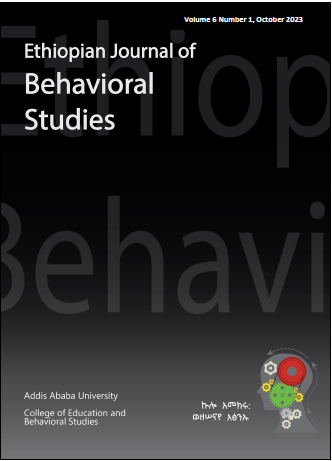Customary Parenting Practices of Arsi Oromo
Keywords:
Customary parenting practices, cultural values, socialization values, gadaa values, and safuu world viewAbstract
The major purpose of the present study is to assess the customary parenting practices/behaviors of Arsi Oromo as well as to examine how parents’ socialization values and beliefs shape these practices. The current study used an ethnographic research design as a guide to this research. It also employed purposive sampling technique to select both the study site (Digelu na Tijo District of East Arsi zone) and the study participants as well as simple random sampling technique (lottery method) to select the Kebeles (the smallest administrative unit) in which the study informants resided. FGD and spot observation were the tools used to collect data from a sample of 70 participants (60 discussants of six FGDs & 10 households). In-depth qualitative data were collected on customary parenting practices/behaviors of Arsi Oromo from well-experienced and active childrearing parents, community elders, religious leaders, abba gadaas (gadaa leaders) and gadaa elders of the study site. Moreover, data were analyzed using thematic technique so as to answer the basic research questions. Generally, the study identified the following major findings. First, traditional authoritarian parenting is a customary practice in child socialization in the context of Arsi Oromo. Second, differential sex-role socialization; harsh disciplinary measures (verbal assault & corporal punishment); firm control and training from early age; physical contact/communication; prolonged breast-feeding and co-sleeping/bed-sharing are found to be the customary parenting practices of Arsi Oromo. Thirdly, traditional socialization values and beliefs that are embedded in the grand gadaa values, patriarchal kinship structure and safuu world view are found to be the major determinant forces that shape the customary parenting practices/behaviors of Arsi Oromo. The current finding that Arsi Oromo still endorses authoritarian (traditional, parent-centered) as opposed to modern/positive (child-centered) parenting practice/behavior generally implies that parenting practice is culture specific (varies across contexts), is determined by the socialization values and beliefs unique to a given society, and thus should be viewed and interpreted from the real contexts and perspectives (socialization values, social norms, normative values-what is valued as desirable by other members of the society & personal values) of that particular society.
Downloads
Published
How to Cite
Issue
Section
License
Copyright (c) 2023 Dame Abera

This work is licensed under a Creative Commons Attribution 4.0 International License.


